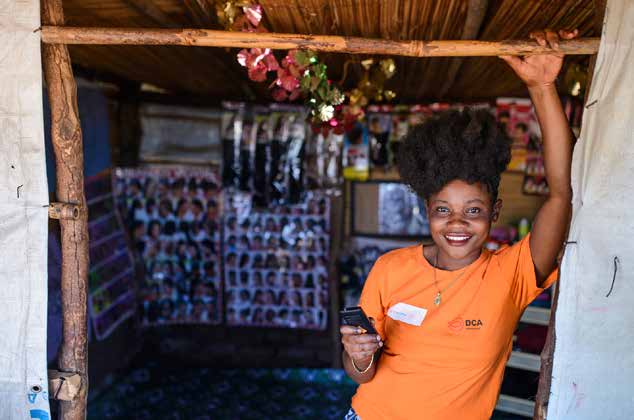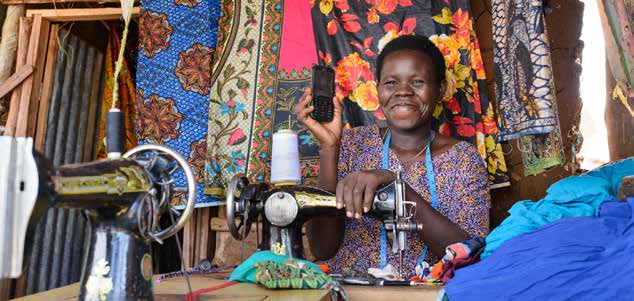Better access to finance and markets for young Ugandan agripreneurs

Limited access to credit is one of the biggest roadblocks young Ugandans face in doing business in their country – something the Uganda Development Bank (UDB) is hoping to change.
Through the joint European Union and FAO AgrInvest project, UDB seeks to provide business development services to young agripreneurs to strengthen their capacity, market entry and bankability.
The Bank’s new youth financing framework, part of its Special Programs, is in line with Uganda’s National Strategy for Youth Employment in Agriculture (2017-2022). FAO helped develop the strategy through its Integrated Country Approach (ICA) project to increase decent jobs for youth in the agri-food system, carried out with Uganda’s Ministry of Agriculture, Animal Industry and Fisheries.
Youth are often seen as riskier clients because they lack business experience, credit history, savings and other assets to offer as collateral. Also, they may have difficulty in connecting to business networks.
Yet, by providing them with the right tools – access to credit and business development skills – young people can develop the necessary social, economic and entrepreneurship skills for greater inclusion and better livelihoods and quality of life.
“Increased access to affordable credit for youth-owned businesses will promote business growth and sustainability, resulting in more jobs and higher domestic incomes,” said Were Eriah Funnah, UDB's Special Programs Investment Manager.

Collaboration with academia
Uganda has one of the world’s youngest populations, with nearly 80 percent of the country’s young living in rural areas.
Creating productive employment along the entire agri-food supply chain – from production to marketing – is important, which is why AgrInvest is helping UDB increase its pipeline of young clients in the agri-food sector.
AgrInvest recently began collaborating with the Makerere University Business School Entrepreneurship, Innovation and Incubation Centre (MUBS EIIC) to strengthen young agripreneurs capacity to access financing.
MUBS will target 135 FAO youth champions – young agripreneurs who can serve as role models for other youth and farmers in their communities – identified by the ICA project.
Activities will focus on helping champions prepare business proposals for UDB, access entrepreneurship opportunities, engage with value chains and strengthen their investment capacity.
According to AgrInvest Project Coordinator Martin Maugustini, “more effective results can be achieved by tailoring training to the needs of youth champions. The business development services will be carefully timed to coincide with the stage at which funds are disbursed by UDB.
The top 50 young champions will receive dedicated agribusiness development services to help them improve their business capacity and market access. The remaining 85 champions will receive tailor-made recommendations to improve their bankability and business practices.
Diana Ntamu, Director of the Entrepreneurship Centre at MUBS, said, “The Centre is excited to empower young people to overcome barriers, prepare them to access financing and exploit opportunities to grow their agribusinesses.”

More inclusive agri-food systems
Although rural youth remain an underserved segment of the population in Uganda, unlocking their potential can contribute to transforming agri-food systems, said Ileana Grandelis, FAO Programme Officer.
“Specific constraints prevent an efficient match between the demand and supply of financial services. This new partnership between FAO, MUBS and UDB will innovate in this regard, easing the demand-supply match and hopefully leading to increased youth productive engagement,” she added.
The AgrInvest project in Uganda will continue to focus on building lasting capacities to leverage sustainable and responsible investments for more productive, resilient and inclusive agri-food systems.
